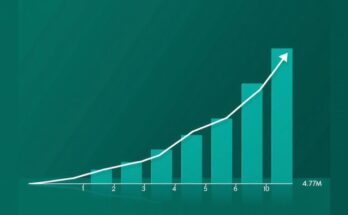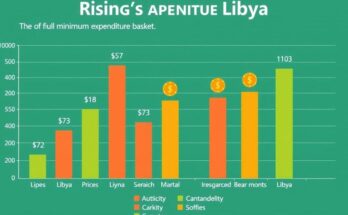Kenya has requested a new lending programme from the IMF, abandoning the current one amid rising debt-servicing costs. The total ECF/EFF facility expiring next month is worth $3.6 billion. The decision reflects challenges due to heavy government borrowing and public protests against tax increases, while Kenya’s debt-to-GDP ratio remains significantly above the sustainable threshold.
Kenya has formally requested a new lending programme from the International Monetary Fund (IMF) as it opts to abandon its current programme amid growing economic challenges. The country is seeking continued financial assistance due to increased debt-servicing costs resulting from rampant government borrowing. This decision follows an understanding between Kenya and the IMF that the pending ninth review under the existing Extended Fund Facility (EFF) and Extended Credit Facility (ECF) programmes will not proceed.
The combined ECF/EFF facility, amounting to $3.6 billion, is set to expire next month. This news affected the Kenyan dollar bonds negatively, indicating investor concern, as maturities fell significantly on the market. Despite the approval of $3.12 billion for disbursement under the current programme, the impending ninth review had the potential to release an additional sum of approximately $480 million.
The IMF did not specify whether the new request from Kenya would pertain to a lending or non-lending programme. Finance Minister John Mbadi previously indicated the government’s intention to pursue a financing programme. The existing ECF/EFF programme, initiated in April 2021, faced hindrances due to public protests against tax hikes and disputes regarding new borrowing from the United Arab Emirates.
To manage its mounting debt burden, Kenya is actively seeking new avenues for financing, which includes enhancing domestic revenue collection. Financial data from last year indicated that Kenya’s total debt-to-GDP ratio stood at 65.7%, significantly exceeding the 55% threshold considered sustainable. Consequently, the country has joined a rising number of African nations that have entered the market to borrow funds to cover maturing debts and ensure vital expenditures such as climate change initiatives are fulfilled.
In conclusion, Kenya’s decision to seek a new IMF lending programme is a reflection of its ongoing economic challenges exacerbated by excessive borrowing and rising debt-servicing costs. The abandonment of the current programme underscores the urgency for financial support. With mounting debt affecting the nation’s financial stability, Kenya is exploring options to bolster revenue and meet critical obligations amidst a wider trend among African nations to manage their liabilities efficiently.
Original Source: www.straitstimes.com




